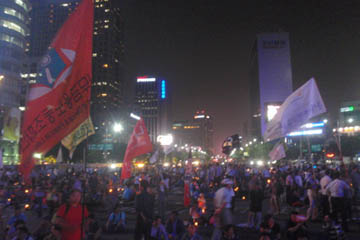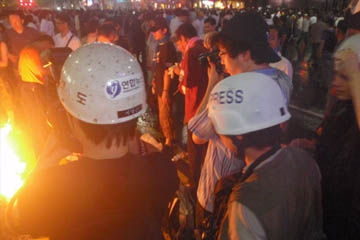
The crowd gathers / Photo Robin Esrock
The irony of looking for a steak restaurant in the frenzied height of a protest about beef did not escape me.
The citizens of South Korea were out in force, vocalizing their discontent at their government’s decision to allow US beef to be imported into the country, after being banned for fear of importing Mad Cow disease along with it.
